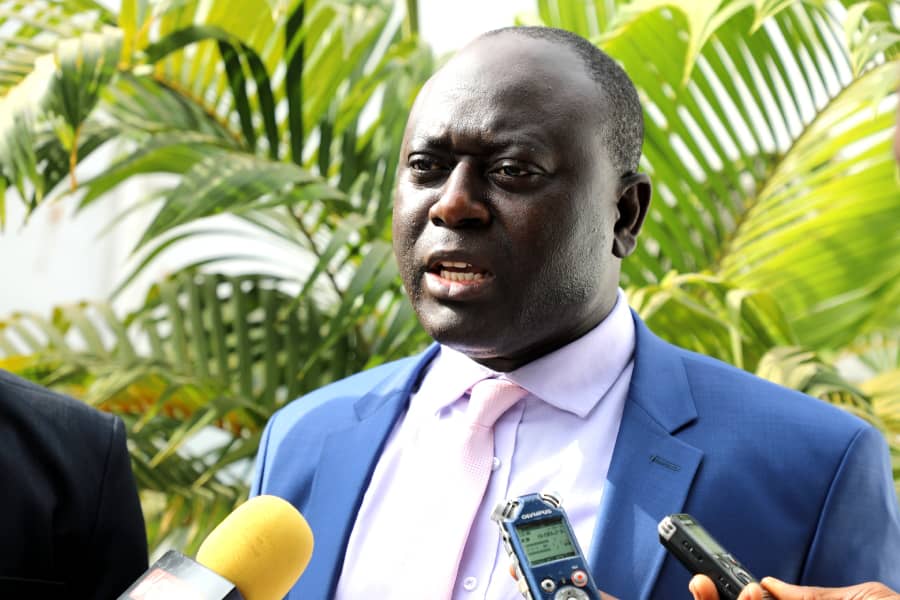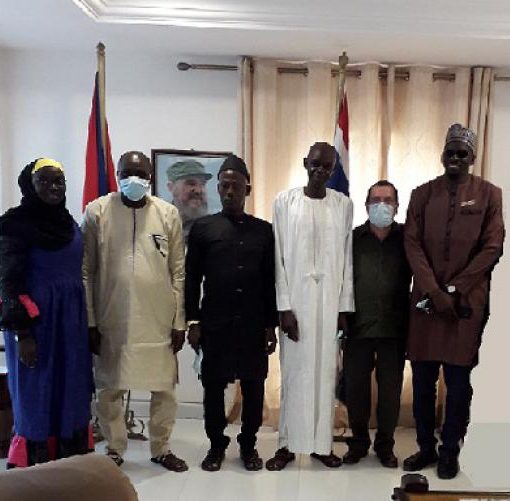Over the years, West African states have made significant gains in consolidating regional peace and stability but the emergence of terrorism and other forms of organized crimes are posing new threats which require collective regional efforts to confront these menaces head-on, said senior Gambian official.
Gambian minister of Information and Communication Infrastructure, Ebrima Sillah made the statement today Wednesday at the opening Committee of Intelligence and Security Services of Africa, West Africa region forum opened, with theme: “The abuse of cyberspace, a challenge to national, regional and international peace and security –call for awareness.”
“As part of these strategic efforts, it is critical to put in place robust intelligence gathering mechanisms that focus on collection of critical information on resilience, information sharing, analyzing and processing for duty bearers to make informed decisions and to take quick actions to protect and save the society from chaos and wanton destruction,” he said.
He recalled that a recent report by the United Nations Office for Drug Control (UNODC) estimated that across the world, Organized Crime generates over $800 billion a year – more than six times the amount of official development assistance to Africa and close to 7 per cent of the world’s exports of merchandise.
“This meeting is timely and could not have come at a better time when there is greater need than ever before for closer collaboration and cooperation among Intelligence Services in West Africa to detect and combat all forms of national and regional security threats…..real or imaginary,” he pointed out.
He added that out of this figure, drug trafficking forms the bulk with an estimated annual value of $320 billion.
He also said human trafficking in which men, women and children are used for labour and sexual exploitation fetches organized criminal networks an annual profit of about $32 billion.
He stated that, illicit trade in firearms is estimated around $320 million annually making it easy for gangs and armed bandits and rebels to lay hands on lethal weapons.
Sillah said similarly, trafficking in natural resources such as timber, diamonds and precious stones often from conflict zones ultimately contribute to the destruction of the environment, deforestation, climate change and rural poverty.
“The traffic in counterfeit medicines is a deadly trade for consumers as they contribute to resistance to drugs and in some cases death.
The above statistics is ample testimony to the lucrative nature of organized crime perpetuated by sophisticated groups who operate within a complex web with a determined effort to achieve their dastardly acts”, he noted.
He said West Africa is a prime target for this high level criminality and as such, all hands should be on deck to tackle it decisively with every power at our disposal.
He stressed that no security threat should be taken for granted or seen as insignificant or small enough to allow our intelligence community into inaction.
According to him, the level of threats may differ depending on the situation at hand but that in itself makes it all the more important for greater synergy and sophistication in the way information on national security issues are processed to detect, neutralize, and prosecute offenders.
“In this era of digital age where criminals of all types have at their disposal gadgets that that may cause consequential damage on national security and societal peace, it is important that national security agencies in West Africa strengthen their collaboration on sharing intelligence on individuals, groups and organizations that abuse the cyberspace to aid, abet and sustain criminality,” Sillah noted.
He further said the advent of cheaper internet is also accompanied by new threats and risks, saying that the net is today the biggest breeding ground for jihadi and other terrorist groups that prey on unsuspecting people who are recruited, brainwashed and radicalized.
“Young people in particular and other vulnerable people in society especially, are the primary targets for recruitment and radicalization with all its severe consequences on national, regional and global peace,” he pointed out.
Sillah also said that because of the increasing interconnection of digital systems through the Internet, the increasing volume of data available and the importance of many processes now digitally handled, governments and institutions are left fragile as they are targeted by cyber-criminals threatening the functioning, integrity and confidentiality of government processes.
As the cyberspace is getting more and more complex, national security services in West Africa need stronger collaboration with critical stakeholders to enlighten people at home and at work to understand the basic cyber security rules.
More importantly, the security agencies should also apply enhanced rules to help governments expand their war on cybercrimes.





